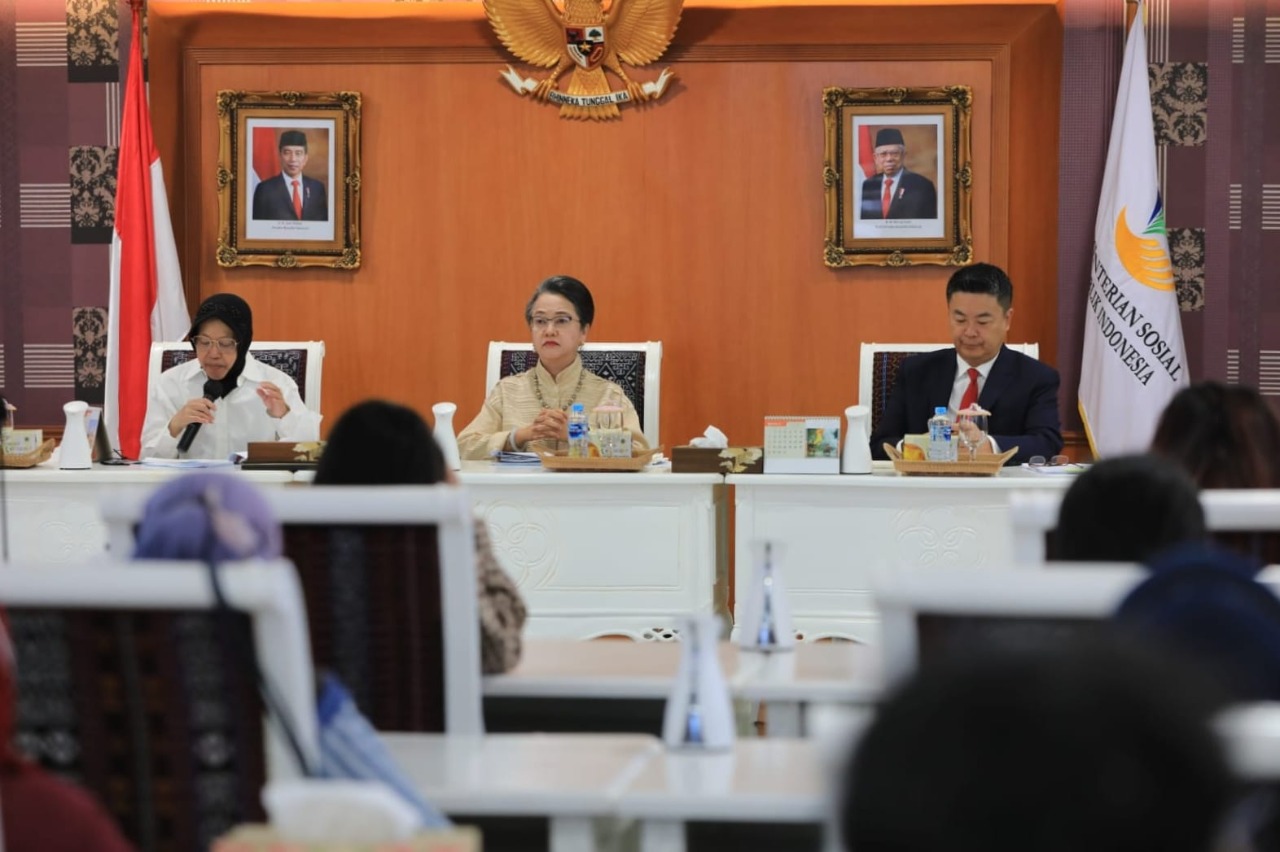JAKARTA (17 October 2022) - Indonesia becomes the host and will share its experiences in handling persons with disabilities at High-Level Intergovernmental Meeting on the Final Review of the Asian and Pacific Decade of Persons with Disabilities (HLIGM-FRPD) which will be held by the United Nations Economic and Social Commission for Asia and the Pacific (UNESCAP) in Jakarta on 19-21 October 2022.
"We hope that we can be a good host and can make our brothers/sisters, persons with disabilities equal, to reduce stigma and discrimination against them," said Social Affairs Minister Tri Rismaharini while leading the Media Briefing with journalists at the Head Office of the Ministry of Social Affairs in Jakarta, Monday (17/10).
Minister Risma, in her statement, said that this joint meeting of Asia-Pacific countries was a response to challenge and obstacles in terms of promotion and protection of the rights of persons with disabilities.
"It is called promotion because there are indeed many acts of discrimination against persons with disabilities, so one of the demands mentioned in this meeting is the promotion and protection of the rights of persons with disabilities," she said again.
According to Risma, over the last one year, Indonesia has been making various breakthroughs to support and facilitate the accessibility of persons with disabilities. The first is groundbreaking, with the invention of adaptive smart sticks and modified smartphones for persons with visual sensory disabilities.
“There is an adaptive stick for a person with visual sensory disability. This stick will work to signal to the stick holder (person with visual sensory disability, or other kinds of disabilities) when there is water, or anything, even disaster in the vicinity. The stick will vibrate and sound so that the stick holder can be alert,” explained Risma.
The second, she continued, approach. Social Affairs Minister Risma said that Indonesia had carried out an entrepreneurial approach. So, it is not only the emphasis on working, but also entrepreneurship for persons with disabilities.
“We teach them to be able to stand up with the technology made by persons with disabilities too. So, this is one of the courage to show how persons with disabilities can create, even their own works, which we can apply for a patent internationally,” she said.
Meanwhile, the third, is the government's alignment with persons with disabilities to properly meet their basic needs, and raise awareness for them.
"We are trying to revive mutual cooperation so that we care for our brothers and sisters with disabilities by providing food through mutual cooperation spirit from local residents, with financial assistance from the government, caring for each other," she added.
The three things, she said, were breakthroughs that Indonesia would share at a joint meeting of Asia-Pacific countries. "Then, Indonesia can also learn from other countries, to share knowledge and experiences," she said.
Meanwhile, the Executive Secretary of ESCAP, Armida Salsiah Alisjahbana said that HLIGM FRPD is held in Indonesia because it is considered to have made some innovations in handling persons with disabilities.
"Indonesia has a lot of innovations, breakthroughs, as the Minister has said, breakthroughs that can serve as examples, lessons learned, best practices for countries that will attend later," said Armida.
Furthermore, the results of the meeting will later be embodied in the Jakarta Declaration, where countries gather and learn from each other, as well as exchange information. “The experience from Indonesia can also be applied in other countries and vice versa," she said.
In Asia and the Pacific, around 700 million persons with disabilities who face barriers to full participation in society. Member States of ESCAP has agreed to build regional cooperation that focuses on how to achieve inclusive development for persons with disabilities. This step is a follow-up to the United Nations Decade of Persons with Disabilities (1983-1992).
During the meeting, ESCAP members will review the progress and achievements of the action plan points in the Incheon Strategy and the Beijing Declaration.
The meeting will also formulate new agreements and renew the commitments of ESCAP members and associations to strengthen the fulfillment of the rights and inclusive development of persons with disabilities in Asia-Pacific. All of these efforts are directed towards the achievement of the 2032 Agenda for Sustainable Development.
Public Relation of
Ministry of Social Affairs
 Bahasa
Bahasa
 English
English


